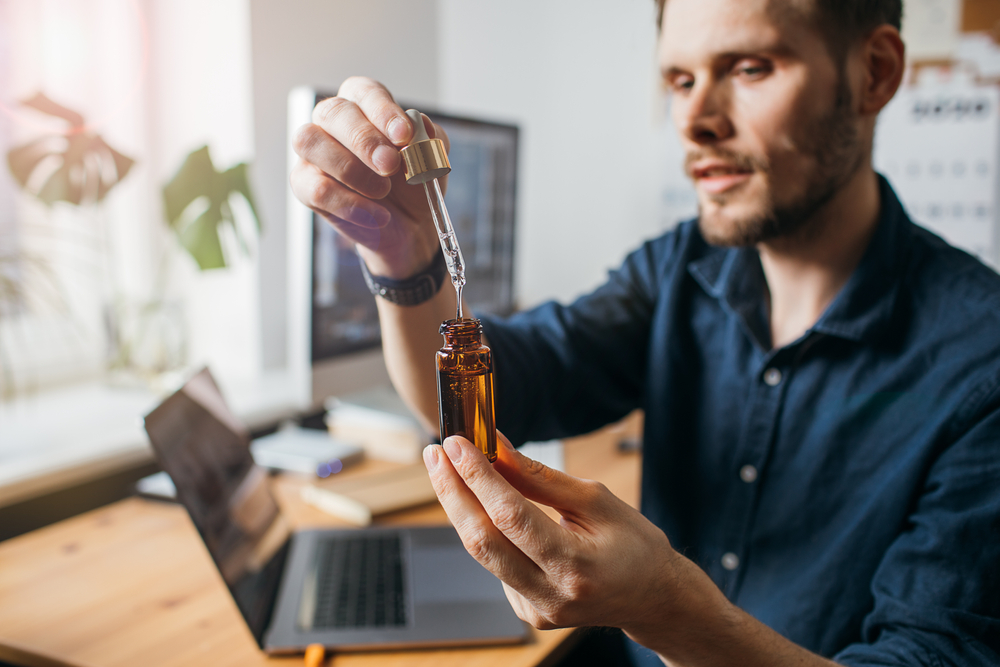In part one of this two-part blog series, we went over some basic answers to a simple question: Is CBD addictive? All the research we have currently indicates that the answer here is a firm no, but it’s also important for CBD users or prospective users to understand why this is the case so they fully grasp the qualities of this relatively new product.
At Koodegras, we’re happy to not only offer a wide range of quality CBD products, from CBD oil topicals and tinctures to CBD edibles, softgels and even pet products, but also valuable information on these products for all our clients, including those new to the CBD world. Despite what you may have heard from a third-hand source, CBD is not addictive – in fact, it may even help with fighting addiction, as we’ll discuss among other themes in today’s part two of our series.

CBD Derivation Format
One area it’s important to be aware of is the fact that CBD can be derived from two sources: Hemp and marijuana plants, which are similar but not the same. Both come from cannabis sativa L. plants, but they have separate chemical profiles – marijuana is higher in THC, so CBD oils produced from these strains may have higher amounts of TCH. TCH can induce a “high” feeling in the user, and while this form of CBD is still not generally considered addictive in the physical sense, this “high” does sometimes make it more likely to create a personal dependence.
CBD made from hemp, on the other hand, contains almost no THC and cannot get you high, meaning any minor risk of even moderate dependence is gone. The vast majority of public CBD products are made using hemp-derived CBD, meaning users do not ever have to worry about getting any kind of psychoactive effect from raised levels of THC.
Helping Fight Addiction
Not only is CBD not addictive, some recent research has acknowledged that it might even be a viable tool for helping reduce addiction or dependence in other areas. For instance, several studies have at least pointed toward CBD as a helpful compound in reducing cannabis withdrawal symptoms among heavy users, and may also have similar effects with nicotine or opioids. More research is needed here to know for sure, but all the signs at this point are positive.
Can You Overdose on CBD?
Simply put, no. An overdose on a drug involves an impact to the brain stem area that controls your breathing – CBD does not affect this brain stem at all, meaning it is not physically possible to overdose on CBD no matter how much you take. You may experience mild side effects if you take too much CBD, such as dry mouth, changes in appetite, dizziness or even lowering blood pressure, but you will not overdose.
For more on whether CBD is addictive (it’s not), or to learn about any of our CBD products or services, speak to the staff at Koodegras today.
